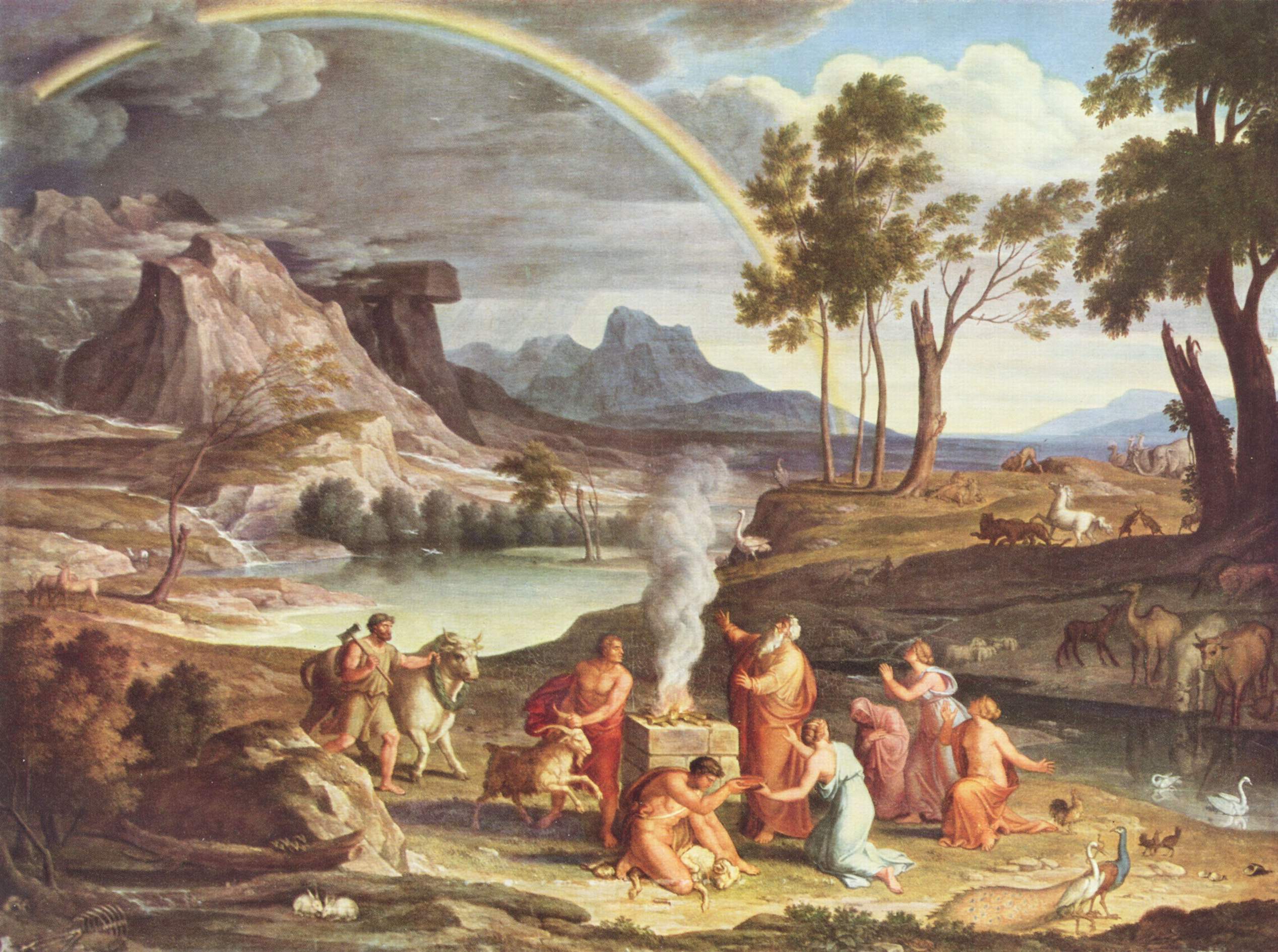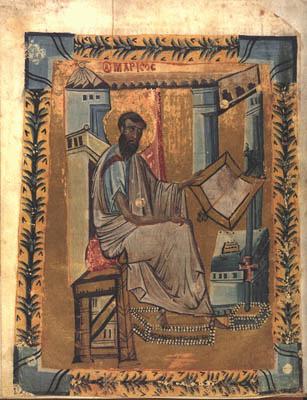Lenten Sunday1 B (01 Mar 2009)
Gn 9. 8-15; Ps 25; 1Pt 3. 18-22; Mk 1. 12-15
Homily of Fr. Paul Panaretos, S.J.
Each Moment
Gn 9. 8-15; Ps 25; 1Pt 3. 18-22; Mk 1. 12-15
Homily of Fr. Paul Panaretos, S.J.
Each Moment
Certain images become controlling ones. They shape what comes to our minds. A red octagon suggests Stop even when we aren’t on the road. Many are the examples each of us can offer. Scriptural images, too, shape what comes to our minds. Controlling images do not always aid our full appreciation. The name Noah often conjures the flood, which destroyed creation. While the flood may be more memorable, it fails to capture completely God’s heart and God’s desire for humans.
The climax of the Genesis account of Noah and his family is not destruction or devastation but life. God’s desire for life is as broad as creation itself for all people. God established this new life by covenant at God’s initiative.
This was not lost to Christians at the beginning. Their experience of the dead-and-risen Messiah Jesus, present more powerfully then and now by his Holy Spirit, allowed them to read scripture, beginning with Genesis, with new eyes, with new minds and hearts.
 The First Letter of Peter, a homily about Christian baptism, saw life in the Spirit in the water of dying with Jesus just as God promised life after the waters of the destroying flood. It saw the Church protecting people as the ark protected Noah and his family.
The First Letter of Peter, a homily about Christian baptism, saw life in the Spirit in the water of dying with Jesus just as God promised life after the waters of the destroying flood. It saw the Church protecting people as the ark protected Noah and his family.Because the liturgy does not offer us the First Letter of Peter as often as the Letters of Paul art and legend suggest the images of Noah and the flood are destructive. Taken together Genesis and the First Letter of Peter help us see that God’s desire is to preserve life, and more, to transform life from human to divine. That transformation begins in baptism.
The Gospel of Mark made another, more subtle Genesis-connection. Mark did not enumerate temptations of Jesus as did Matthew and Luke, who gave us our controlling images of Jesus in the desert. Instead, the First Gospel simply noted that Jesus was among wild beasts. How different the world had become because of sin: in God’s original creation no enmity existed between humans and animals!
As a result our experiences, spanning the mundane and the religious, are beset by forces inimical both to God and to us. Yet, at each moment God’s desire is to minister to us, to protect us just as God ministered and protected God’s son, Jesus. Even when to human eyes God seemed to have abandoned Jesus in death, God raised Jesus to absolutely new and indestructible life, the life of heaven as scripture names it.
 This is good news, gospel, to which Jesus calls us to believe each day. Lent renews us in his good news. Entering it allows us to become more like Jesus, the new Noah, who waited patiently, confident God would save him; and not only save him but make his proclamation of the good news of salvation fruitful.
This is good news, gospel, to which Jesus calls us to believe each day. Lent renews us in his good news. Entering it allows us to become more like Jesus, the new Noah, who waited patiently, confident God would save him; and not only save him but make his proclamation of the good news of salvation fruitful.What then might Lent’s controlling image be for us this year as we enter it? We heard St. Paul offer a refreshing and restorative one on Ash Wednesday: now is a very acceptable time...now is the day of salvation./1/ Each day is now. Many of us who heard Christopher Walker here at Gesu in the middle of February appreciate the word now in God’s sense. Each moment is now.
Each moment God invites us to live God’s life. Each moment God invites us to share by what we do the life God gives us. Each moment God invites us to allow the paschal mystery of the death and resurrection of our Messiah Jesus to transform us and renew us.
In your 15 minutes with Jesus this week, compose yourself in the life-giving love of the Trinity. Ask your patron saint to present you to Jesus so you may converse with him. Speak to Jesus about the many images which seek to control your allegiance to him and to the risen life Jesus shares with you. Resolve to focus on your baptism and its life, dignity and vocation in order to renew the way you live your Christian life. Close by saying slowly the Lord’s Prayer. No better prayer so succinctly appeals to God and helps us to live as agents of the new creation in Jesus our risen Lord.
______________
1. 2 Corinthians 6.2, which closed the Second Reading at mass that day.
____________________________________________
Wiki-images of the Sacrifice of Noah and of Mark the Evangelist are in the public domain
No comments:
Post a Comment